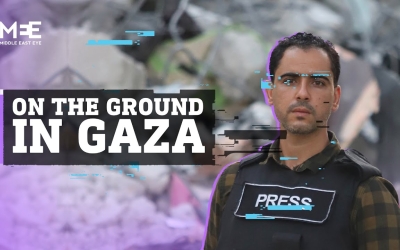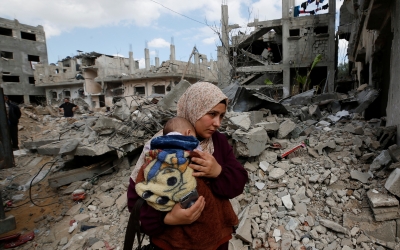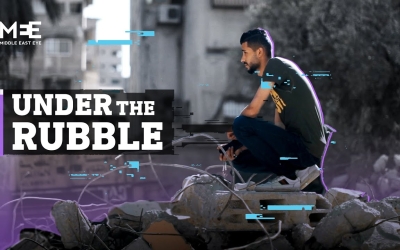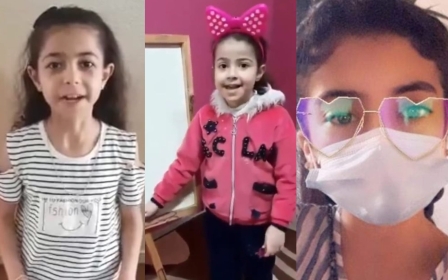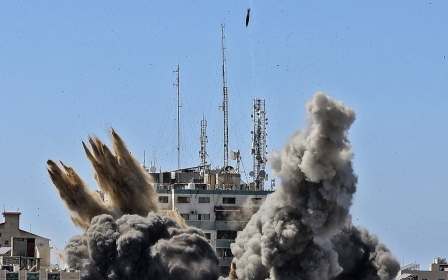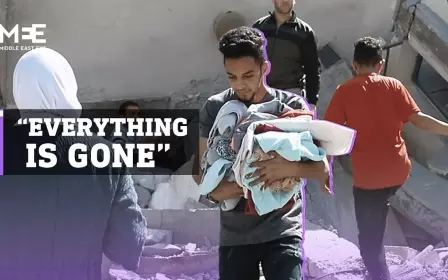Israel's deadly air strikes on Gaza 'apparent war crimes'
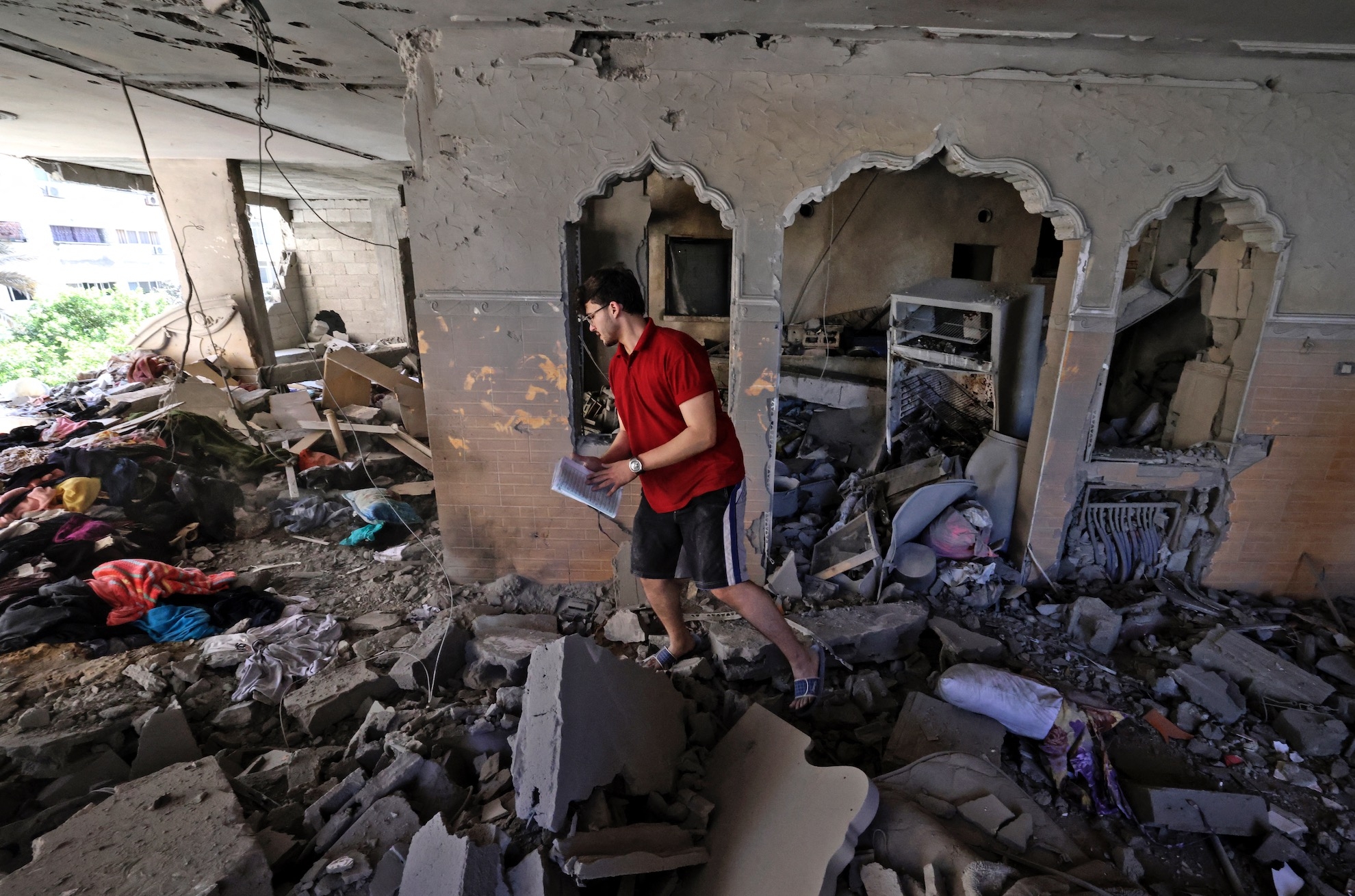
Israel’s offensive on Gaza in May, which killed over 260 Palestinians, violated laws of war and amounts to war crimes, a report published by Human Rights Watch states.
In the report, published today, HRW states that an investigation and a series of interviews conducted by its team found that Israeli air strikes had targeted areas where there were no evident military targets in the vicinity.
Gerry Simpson, associate crisis and conflict director at Human Rights Watch, said that the offensive on Gaza had targeted residential and civilian areas.
“Israeli forces carried out attacks in Gaza in May that devastated entire families without any apparent military targets nearby,” he said.
Simpson has also called on further investigations to be made into the Israeli government’s blockade on Gaza as well as the persecution of Palestinians.
“Israeli authorities’ consistent unwillingness to seriously investigate alleged war crimes, as well as Palestinian forces’ rocket attacks towards Israeli population centres, underscores the importance of the International Criminal Court’s inquiry,” he added.
Gaza’s Health Ministry reported that Israeli forces injured over 1,900 Palestinians, including 610 children.
HRW conducted the investigation through interviews with Palestinians who suffered under the attacks, as well as relatives of civilians who were killed and residents in the areas.
Investigations were also carried out into the sites of the strikes, which were analysed using satellite imagery, video footage and photographs.
Youssef al-Masri was one of those interviewed by HRW. At the time of the offensive on 10 May, he and his brother Ibrahim were around 200m away from their home.
“We immediately ran to our houses. I saw my two dead sons, Marwan and Ibrahim. Imagine seeing your child’s brain on the ground. Imagine seeing your children’s eyes outside their heads… there was smoke coming out of my children’s mouths and from their clothes. It was horrible,” he said.
Others described the trauma of hearing the air strikes hit their neighbourhoods.
On 30 May, HRW requested permits for their researchers to enter Gaza in order to conduct further investigations. However, Israeli authorities rejected the request in July, according to the report.
The report cites international humanitarian law, stating that Israel violated laws of war by carrying out deliberate attacks where there were no military objectives.
The laws of war state that attacks prohibit indiscriminate attacks, including attacks that do not distinguish between civilians and military targets.
Calls for further investigations
The report has called on the UN Human Rights Council to examine the attacks committed by Israeli forces and Palestinian armed groups during the fighting. HRW has also called on judicial authorities in other countries to investigate the events and prosecute under national laws.
Survivors of the attacks on al-Wahda Street in Gaza City also described their experiences following a series of Israeli air strikes which struck the area.
“Four explosions shook our house. They all happened in about five seconds. The house swayed and I thought it was going to collapse… I caught my sister’s hand, pulled her to the corridor and hugged her,” said Omar Abu al-Awf, who was the only survivor of his family after the four-story building they lived in collapsed.
According to the Isralei military, tunnels and an underground command centre were being used by armed groups. However, the investigation, combined with information from the Gaza Ministry of Health, found that a number of residential buildings were hit.
The Israeli military did not specify what they meant when they said they were targeting the underground command centre, and also admitted to not knowing its size or exact location at the time of the attack, according to a statement it made and the report.
None of the witnesses that HRW interviewed said they had received or heard about any warnings that they should evacuate their buildings before the air strikes.
According to the report, some Palestinian armed groups also committed unlawful attacks.
Middle East Eye propose une couverture et une analyse indépendantes et incomparables du Moyen-Orient, de l’Afrique du Nord et d’autres régions du monde. Pour en savoir plus sur la reprise de ce contenu et les frais qui s’appliquent, veuillez remplir ce formulaire [en anglais]. Pour en savoir plus sur MEE, cliquez ici [en anglais].


